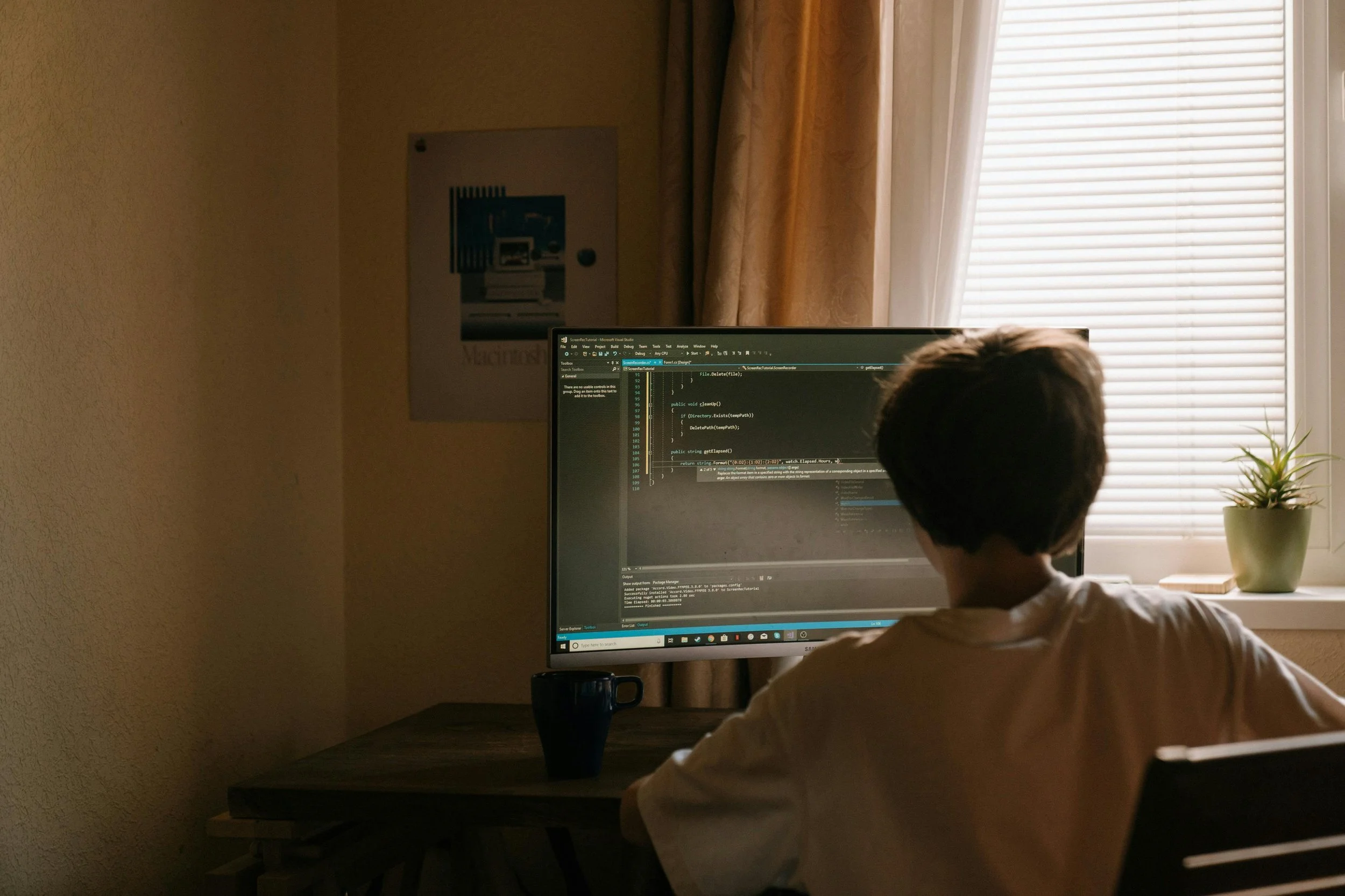Gap-Year Skills: How Learning to Code Online Can Boost Your Career
Let’s talk about that lovely gap year. That glorious hiatus between college and high school, or between semesters or life stages, when you’re supposed to figure things out, travel, “discover yourself,” and remain busy enough to impress potential employers. It’s the delicate balance between chill time and planning your future.
Some use that time working retail, saving for university, or volunteering abroad. And you know what? Go for it. But if you’re sitting there thinking about how to turn your gap year into something that makes your resume pop and your confidence skyrocket, you might want to consider learning code.
No, you don’t need to be the next startup entrepreneur of Silicon Valley. But you could come out of the year having gained skills that open doors, even if you're still not entirely sure which one you want to walk through.
Why Coding? Why Now?
Think about it: you're already spending half your life online. Apps, games, websites, digital planners, smart fridges, code is what makes them tick. When you understand that, you become more than just a user. You become a creator. And no matter if you're interested in marketing, design, finance, or education, code puts you at a serious advantage.
Even basic programming knowledge is a gift to your future self. Want your own website? Thinking about setting up an Etsy shop with automation? Hoping to freelance someday? Learning how to tweak HTML or write a bit of JavaScript isn’t just cool, it’s useful.
Where Do You Even Start?
You don’t need to sign up for a traditional degree or take out another loan. That’s the beauty of learning online. You can do it from your bed, a local café, or that odd beanbag in your living room. There are options for every level, from absolute beginners to those who already know a thing or two about syntax.
Websites like freeCodeCamp, Codecademy, Coursera, and Udemy let you learn at your own pace, often for free or under $100. If you like having structure, try tracking your progress with Notion or Google Sheets; it makes everything feel more manageable.
The best part? You can experiment without pressure. If HTML bores you, switch to Python. If Python’s not clicking, explore CSS or JavaScript. It’s your gap year, there’s time to play around without needing to be perfect.
Make It Count: Coding + Real-Life Projects
Learning the basics is great. But using them? That’s where the real growth happens.
Want to give your resume or portfolio some personality? Build something. It doesn’t have to be complex, a personal blog, a digital planner, or a budgeting tool you wish you had in high school. If you’d use it, it’s a good idea.
Flashy doesn’t equal valuable. A basic working website shows way more initiative than a certificate you skimmed through. If you're feeling brave, upload your code to GitHub or share your creation on LinkedIn. Hiring managers remember doers, not just list-makers.
The Resume Glow-Up
A year off can make some employers sceptical. Will they assume you spent 12 months binge-watching series? Maybe. Unless, of course, you have something solid to show them.
Picking up coding, creating your own projects, maybe even doing a bit of freelance work, all of that tells a story. A strong one. One where you're self-reliant, driven, and curious enough to learn something that no one made you learn. That’s the kind of person people want on their team.
Even if tech jobs aren’t your end goal, digital fluency matters. It’s becoming a basic expectation in almost every industry. Being the person who can fix a broken spreadsheet or troubleshoot a site glitch makes you a quiet MVP.
Hidden Advantages (That No One Informed You About)
Truthfully, coding teaches more than just coding. It teaches patience. It helps you get better at solving problems. And if you’ve ever stared blankly at a screen at 2 AM wondering why your bracket is in the wrong place, then you’ve already learned resilience, too.
It also does something else: it boosts your confidence. Once you’ve built something that actually works, your brain rewires a little. Suddenly, you start thinking, “Maybe I can do this.” You stop relying on Google to save the day and start figuring things out on your own.
And who knows, maybe you’ll even end up using your skills to teach computer science online, helping others get started while earning a little extra on the side.
Turning Learning Into Earnings
Not everyone wants a side hustle during their gap year, but if you’re the type who does, coding gives you a great head start.
You could freelance as a website designer, help a local bakery update its site, or tutor high school students who want to learn basic coding. And with just a bit of experience, you might even find a flexible remote internship or junior development gig that fits your schedule.
You Don’t Have to Know It All
One of the biggest things that holds people back? Thinking they need to know everything before they start. You’ll hear them say, “I just want to watch one more tutorial,” or “Maybe after I finish this course…”
Here’s the reality: even senior developers use Google. They read forums. They troubleshoot on the fly. That’s just part of the job.
So instead of waiting to feel “ready,” just begin. Build messy things. Ask questions. Break your code, then fix it. That’s how you learn. That’s how you grow. And that’s how your gap year becomes the kind of story people want to hear.
The Bigger Picture
When your gap year winds down and it’s time to move into whatever’s next, whether it’s school, work, travel, or something else entirely, you’ll still have this.
Not just new skills. But proof that you used your time wisely. That you stretched yourself. That you chose to do something different and stuck with it.
That kind of experience leaves a mark. In interviews, in future jobs, and in the way you solve problems moving forward.
Even if you never work in tech, the confidence, adaptability, and independence you gain will stay with you. And those are the things that help you stand out long after your gap year’s over.











That’s the trap so many small businesses fall into, and while sure, there’s plenty of online marketing trends that are constantly coming and going, well, it’s a lot of time, energy, and of course, lots and lots of money, and it’s all in the hopes of getting noticed (and sometimes thinking that it’s literally the only way to get noticed too.